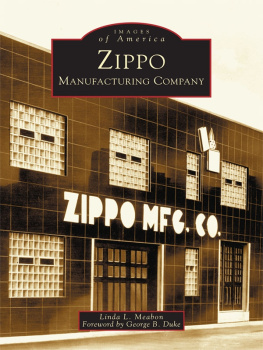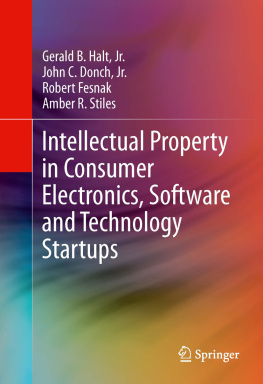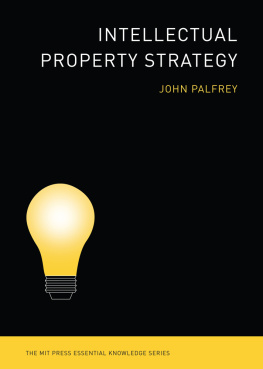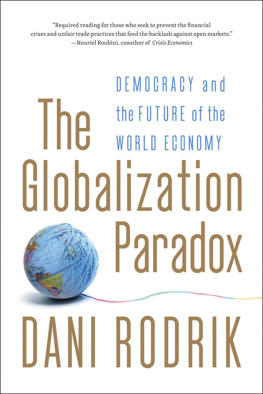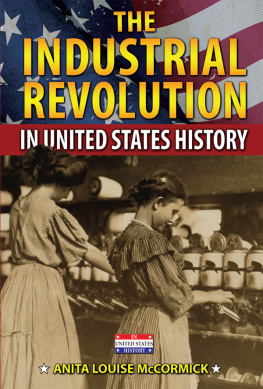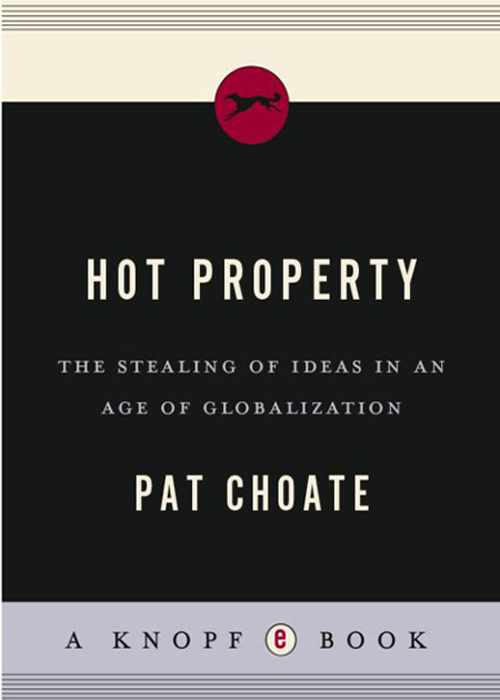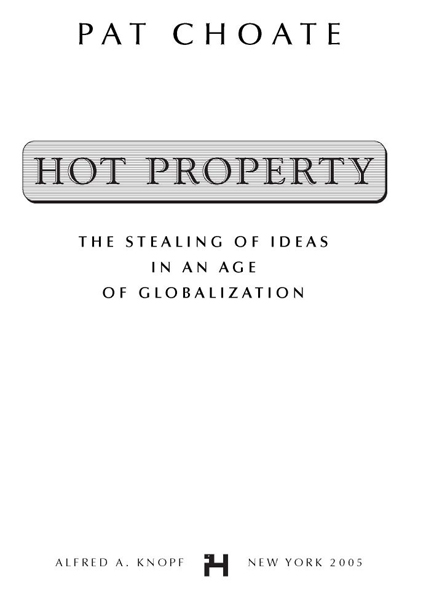Contents
To Jerome and Dorothy Lemelson
Ideas are the purest product of the mind... thegreatest, most stable source of the wealth of nations.
Joan M. Bernott, author of Bright Ideas at Risk
Knowledge has become the key economic resource andthe dominant, if not the only, source of competitiveadvantage.
Peter Drucker, The Atlantic Monthly, November 1984
The primary cause of economic development is themind. The cause of wealth is invention, detection,enterprise.
Michael Novak, political scholar
[Patents]... added the fuel of interest to the fire ofgenius, in the discovery and production of new anduseful things.
Abraham Lincoln, Lecture on Discoveries and Inventions
The Congress shall have power... to Promote theProgress of Science and useful Arts, by securing forlimited Times to Authors and Inventors the exclusiveRight to their respective Writings and Discoveries...
Article 1, Section 8, of the Constitution of the United States of America
INTRODUCTION
MY FAKE ROLEX
In the summer of 1990, my corporate employer and I separated without ceremony, as the term goes, which meant I got no good-bye dinner and no parting gift. As consolation, Michael Barker, a friend for many years, invited me to lunch at Billy Martins Tavern, an old-fashioned steak house in the middle of Georgetown, one of Washington, D.C.s best neighborhoods. After the meal and with a bit of fanfare, Michael presented me with a gaudily wrapped box, along with a few impertinent comments. Inside the box was a big, chunky, fake gold Rolex watch with a broken bandwhat he called an appropriate memento.
As we were leaving the restaurant, I asked Michael where he had purchased my gift. He pointed to a sidewalk vendor who was sitting behind a tacky little card table covered with cheap jewelry and trinkets. We walked over and asked the man to show us any watches he had for sale. He reached under his table and pulled out a small display carton containing maybe a dozen watches, some of which were poor imitations of famous brands and others that looked like the real thing, though, of course, none was.
Fast-forward to the spring of 2004. The two of us return to Billy Martins, but now two big vending tables are outside the restaurant, each at its own corner location. (Apparently, the sidewalks on the other corners were too narrow.) The vendors have decked the booths with faux luxury items elegant handbags, leather wallets, beautiful silk scarves, belts, perfume, and, of course, watches. Louis Vuitton and Chanel handbags, purportedly indistinguishable from the originals, are there for $65. Have a particular Rolex model in mind? Here it is. Want a Cartier tank watch? There are two modelsone with a silver band, the other in leather. Prefer a Movado? They are all available. All fake.
Michael picks up a faux designer belt. He is wearing the real thing (he thinks). He paid $250 at the designer store, but this goes for $20. After inspecting the counterfeit, we cannot tell the difference between it and the genuine item. The vendors, of course, will process any credit card, using wireless technology to get a quick approval. Gift-wrapping is available for a small fee.
We take a cab downtown, where we see similar booths. In two places, we have trouble crossing the street because the booths and the customers crowding around them spill into the crosswalks. Apparently, the booths with the best knockoffs are found on and near the famed K Street corridor, where Washingtons richest and most powerful lobbyists, lawyers, and former public officials have offices. Throughout the day, you can see Washingtons political and legal elites stop at the booths, make their purchases, and then move on.
These sales are illegal, violating the laws of the federal government and the District of Columbia, both of which forbid sales of pirated and counterfeit merchandise. Still, in the early morning of most days, Michael says that you can see the vendors double-park their vans while they set up and stock their stands. He also claims that if you are patient, you can see a police car glide up to a booth and stop, a window go down, the vendor hand in a purse or some other luxury item, the window go up, and the car ease away.
Three blocks from the heart of downtown Washington, 17th Street crosses Pennsylvania Avenue. Step across the avenue and on the east side are the White House and the Old Executive Office Building. On the west side is the building that houses the Office of the United States Trade Representative and Americas top trade negotiators.
Evidently, the irony of the situation seems lost on our public leaders. Yet a principal thrust of U.S. trade negotiations is to stop the global pirating and counterfeiting of goods even as a bazaar featuring such U.S. and foreign-made products operates openly in the very heart of Washington. Any diplomat or trade negotiator staying at the Mayflower Hotel in downtown Washington would have to walk around or through this bazaar of fakes to reach the White House or the Trade Negotiators Office.
Ultimately, this blatant peddling of fake goods is not about municipal corruption in Washington, though that exists. Rather, it is about a global crime of immense proportionsthe stealing of ideas, creations, and productsthat is becoming so common that we accept it, even as we condemn and outlaw it.
Consider this: the Chinese government has a quota on the number of Hollywood films that can be legally imported, now twenty per year. Yet, throughout China, customers can buy pirated digital copies of most American-made movies for as little as 75 cents. Subtitles, of course, are available. To get a copy of a first-rate movie before Hollywood releases it in the United States, Chinese buyers may have to pay as little as $1 to $3 per disc. Pirated copies of The Matrix Reloaded, Kill Bill: Vol. 1, Star Wars II, and the Lord of the Rings trilogy, among dozens of other recent hits, were widely available in China, often before they were in U.S. theaters. Chinas largest legal distributor of Hollywood films reports that he sold 300,000 legitimate copies of Titanic but that pirates sold between 20 and 25 million. On average, the countrys knockoff vendors outsell the legal movie distributors about 35 to 1.
In Pakistan, illegally duplicated CDs constitute almost 100 percent of total music sales. In Russia, music thieves operate with such impunity and so dominate the market that three of every four recordings sold are unauthorized copies.
In China and Vietnam, more than 90 percent of the packaged business software installed in computers is pirated. In Eastern Europe, more than 71 percent of such software comes from illegally produced copies; in Latin America, the figure is 55 percent. When Microsoft introduced its Windows 95 software in 1995, it sold for $85 in the United States. Only days after it was introduced in the U.S., counterfeit copies of the package, including both the software and the manual, could be bought in China for only $5. A decade later, the current version of Microsofts operating system sells in China for less than $2 a copy. Apparently, even pirates face market pressures.
In Italy, counterfeiting is an established industry with a long, discreditable history. Buyers can easily find top-quality copies of luxury-brand shoes, belts, bags, dresses, and scarves. Three out of four Italian producers of designer wear suffer from counterfeiting. Also, more than 80 percent of Italian consumers say they willingly buy fake goods. Indeed, fake is fashionable there.


